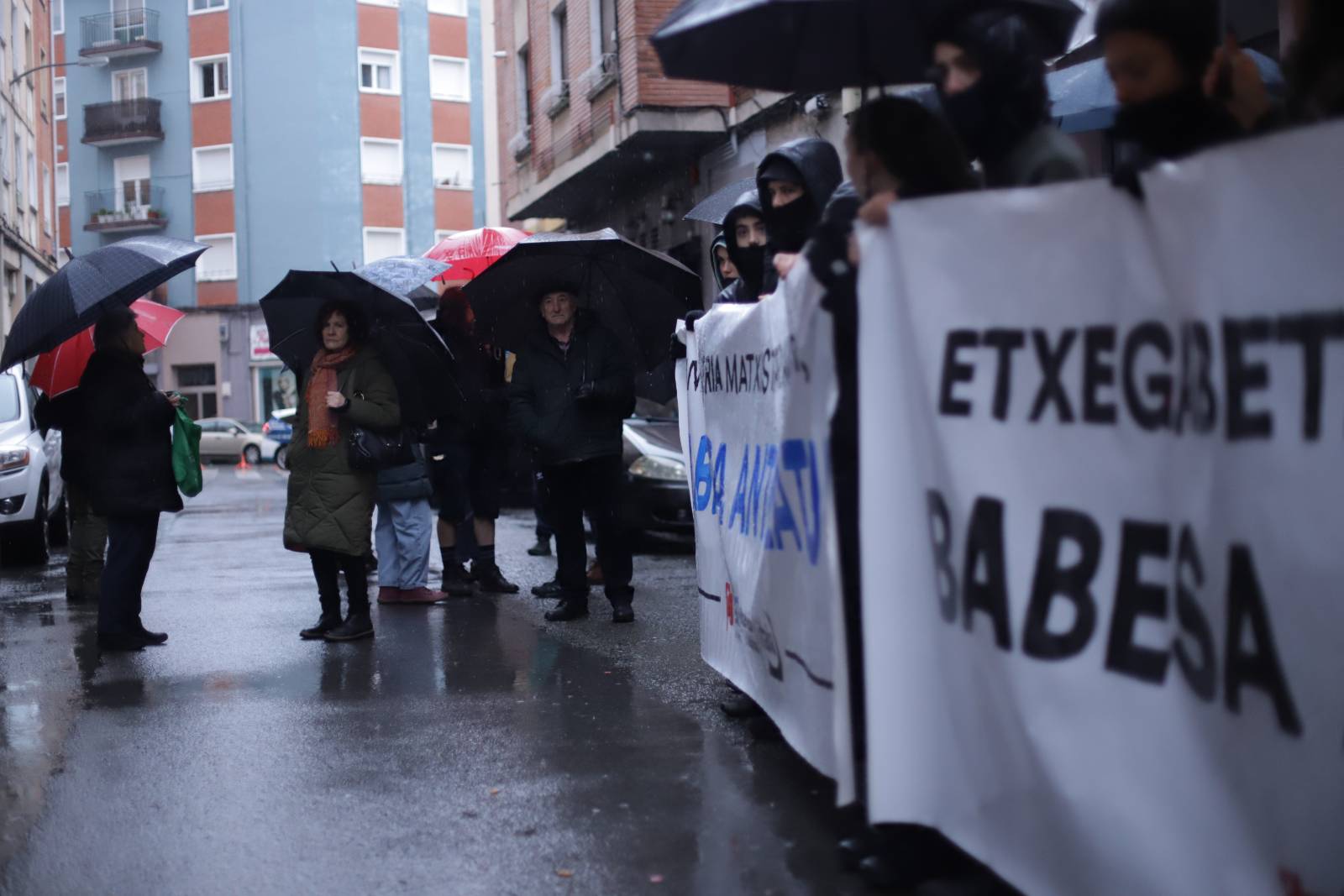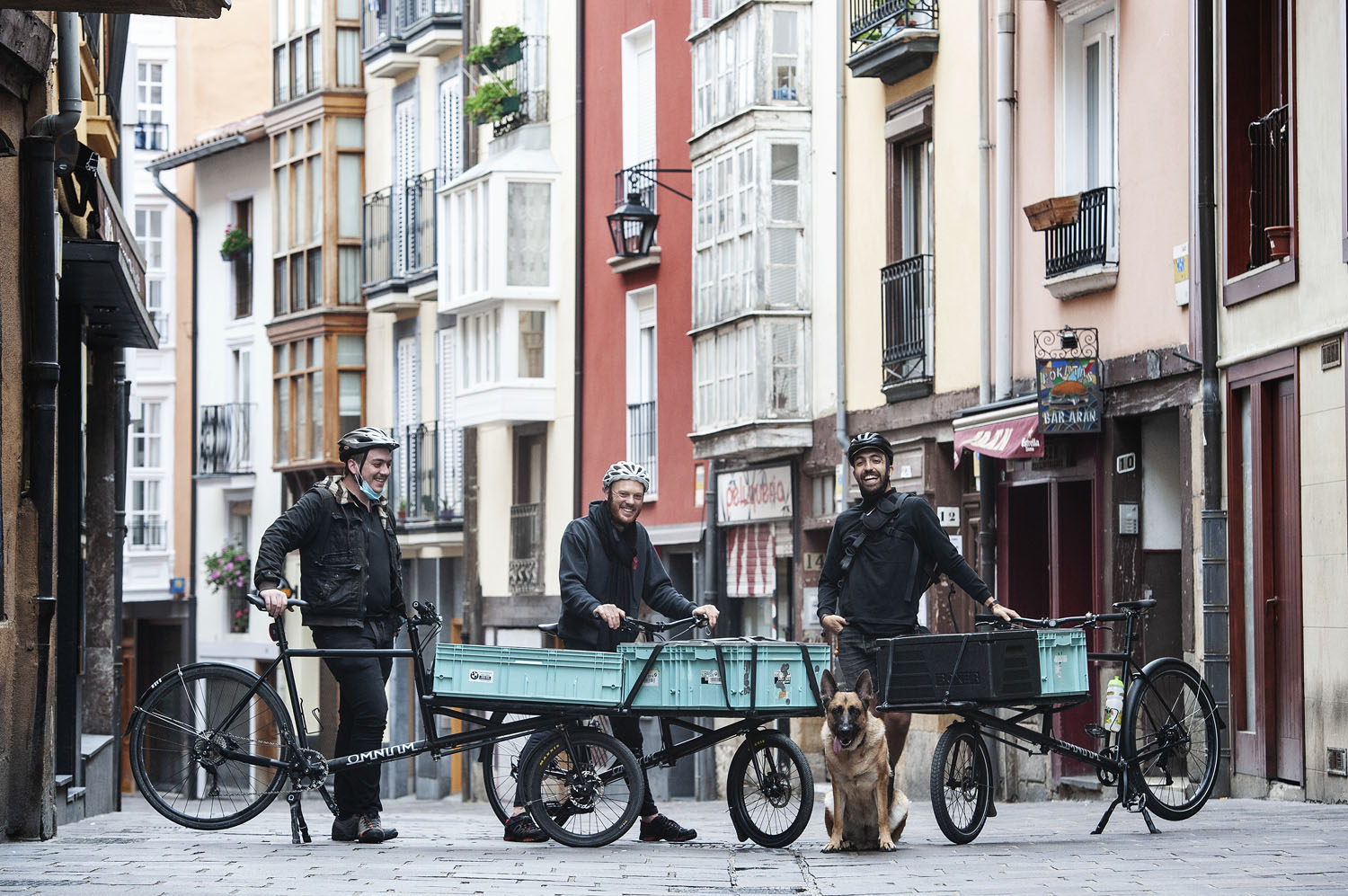"There are currently more possibilities for inter-class contact"
- Imanol Esnaola is the coordinator of the Observatory for Economic and Social Development of the Basque Country, Gaindegi. It explains to us that in the midst of the crisis we are experiencing, the possibilities for cohesion between social classes have multiplied. What was said in the interview was summarized as an analysis.
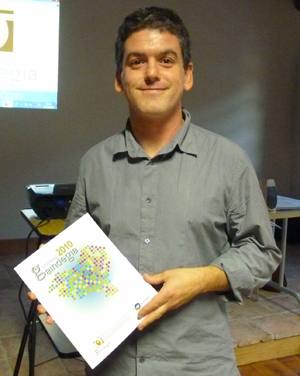
Classes exist. And I have no doubt that the lower class is the working class, despite the differences. In these years, something has happened that we didn't imagine: bank executives and big companies, with high salaries, going from one day to the next to the red street and they can't afford the house. What is that: middle class or working class? In my opinion, insofar as he is employed, he is a worker. We should consider many employers as workers, as we must not forget that 90% of the companies in the Basque Country have less than nine workers. The pattern also gets the monkey every morning.
The question to ask is: What do you want to be? What's your goal?
That is, does the middle class claim rights or seek privileges? The two, surely, to the extent that we all do, but they do not have at their disposal the financial and technological means to maintain a privileged position, such as the oligarchy.
In times of profit, the middle class looks up. On the contrary, in times of crisis, when time is being spent, the discourse is aimed at maintaining its position. We're at that moment. The people who settled in the middle class and in the working class have seen that the system hurts them and that a model that offers more guarantees is needed. Citizens are feeling their own weakness.
The middle class wants to mimic the oligarchy. It's often mimicked by hyper-righteous attitudes. This can be seen in individualism or consumption habits: it wants to be like the house it has, a car of the same brand, traveling on weekends… And if the oligarchy underestimates social values, it too. Much of the middle class then becomes a higher class, whose effectiveness extends beyond its social spectrum. It is true that in the midst of this crisis it is more difficult to do so, because the oligarchy does not offer promises. But what will happen when I offer them?
The crisis can lead to the loss of basic rights: the right to retirement, basic economic resources, housing -- the values that the Western welfare society has promoted are in question. That large middle class that lived comfortably, and that relied on infrastructure, health services and public education, has seen that all of this was perhaps not real and that social positions are not stable. Trust has crumbled.
There are States because there are middle classes. The disappearance will bring a dictatorship. They're a balancing subject, there hasn't been a more operational element since World War II. But now it's weakened and states are very conscious.
To the question of classes in the Basque Country, there is another element: from the point of view of rights, France and Spain are not equal. In the case of France, the concept of equality has made a guaranteed state of the highest quality. For example, the basic income is twice that of the South. And thanks to the labor struggle, professionals have a series of guarantees in terms of salaries, training or possibilities of successfully approaching the world of work. Spain, on the other hand, does not offer as many guarantees. The oligarchy, moreover, has a lot of weight. Their interests prevail and the principle of equality is relegated to the background.
Is a Basque logic going to put one another in the need for classes?
In order to maintain social cohesion, administrative structures must provide guarantees. Now, as precariousness is hitting more and more people, opportunities for new consensuses can be created.
Look at Catalonia. The totally unbalanced economic scheme imposed on it by Spain, which almost reaches the back, has led to a coincidence. The cry of sovereignty has been translated into positive parameters. Back to Euskal Herria, sovereignty would be beneficial to the working class, as all the cuts fall on it. Regarding the oligarchy, it seems that in recent years it has been seen that the fall of the brand Spain has generated mistrust towards the State. CiU is the example. Here too, when the officials were paid back… If a Spanish rule can leave CAV salaries unmoved, what will they not do if they do a little more!
Is it possible to achieve a class match in the Basque Country that shows that we are better together? Many will say no, but thinking frightly, the answer should be yes. It would be a difficult and long process, but consensus will have to come sooner or later. To build a people, there is no other way to build coalitions, bearing in mind that the fundamental element and the beneficiary must be the working class. Agreements must be reached between the middle and upper classes. From a national point of view, this middle class crisis makes things clearer.
Territorial crisis
This economic crisis is also a territorial crisis, as shown by data from Ipar Euskal Herria [see table on page 12]. It has three characteristics: Dependence of the North on the rest of France; dependence of the interior on the coast; and two social groups affected, Basque farmers in the interior and French on the coast.
The decisions of some condition those of others. Those on the coast will buy cheaper houses if they are needed cheaper indoors. Housing will be built on agricultural land, regional planning will be modified, roads will be built… The income gap brings different territorial practices and, in this case, who has resources, imposes territorial policy, as denounced by the Union of Farmers of the Basque Country (ELB).
Ipar Euskal Herria does not have an arrangement that meets his needs. As it's deployed from the outside, it generates harmful dynamics. In this sense, the poorest areas of Euskaldunes are the poorest, the oldest, the least endowed with resources... Since Iparralde does not have the competence to regulate its territory, it cannot develop possible strategic coincidences with the South. It cannot exploit synergies.
The claim of the Debabarrena Single Commonwealth is situated in this environment. It is very important that Iparralde presents himself before France as different – as a Basque –. In addition, it has functional components: economy, training, territory, identity… Although the State guarantees basic elements of consensus – pensions – more and more companies and territories are affected, which has generated some coincidences. The doors opened by the economic crisis have a great deal to do with the territory, understood in collective terms. We all suffer and change the situation requires the participation of all. It has been clearly seen in the north.
In the case of Hego Euskal Herria, the guarantees offered by Spain are disappearing. Cuts have been made, laws have been amended… and all this has called into question a number of issues that were given for certain. Today, there are possibilities for building consensus. I do not know if they will be achieved, but at least there is a need.
People know we're all going in the same direction. In our case, there is also a territorial component. That is, Spain fascinates the entire Basque Country. We have inescapable collective elements that would benefit us if we learned to make good use of them.
From the point of view of Gaindegia, in the Basque Country it is essential to consolidate a reality that favors all citizens and sectors a more balanced distribution of wealth and a guarantee of rights. This may mean the need to work together on the same problem, and we socio-economic players will have to make contributions. Who has to take the first step? People with decision-making capacity, each at their level: unions, employers, administrations, teachers, journalists… Cooperation must be the starting point and goal of Euskal Herria.
Ipar Euskal Herrian urteko errenta gordina pertsonako 16.830 eurokoa da (2009). Banaketa funtzionalari erreparatzen badiogu, kostaldean errenta pertsonalaren balioa 17.659 eurokoa da, bitarteko zonaldean 17.118 eurokoa eta barnealdean 12.857 eurokoa. Azken hamarkadan errentaren hazkunde orokorra nabariagoa izan da barnealdean (%75ekoa) eta bitarteko zonaldean (%58,7) kostaldean (%35,6) baino. Horrek, modu apalean bada ere, orain hamar urte arteko desorekak apur bat leundu ditu, Gaindegiaren Ipar Euskal Herriko errenta txostenean irakurri daitekeenez.
Desorekak familia errentaren arabera neurtuz gero argazkia aldatu egiten da. Errentak barnealdean kostaldekoa baino apalagoa izaten jarraitzen du baina familia errenta altuena bitarteko zonaldean dago (34.150). Lurraldeek dituzten familia egitura eta lan jarduera ezberdinei erantzuten diete horrek.
I received your e-mail in personal mail on the strike portals. At first, like many others, I thought it was to let you know what options we have in the face of the strike. But no, the e-mail received was a political and communicative movement against the strike.
I will confess... [+]
Zalantza asko izan ditut, meloia ireki ala ez. Ausartuko naiz, zer demontre! Aspaldian buruan dudan gogoeta jarri nahi dut mahai gainean: ez da justua erditu den emakumearen eta beste gurasoaren baimen-iraupena bera izatea. Hobeto esanda, baimen-denbora bera izanda ere, ez... [+]
Hirietako egunerokoa interesatzen zaio Sarah Babiker kazetariari; ez, ordea, postaletako irudia, baizik eta auzoetan, parkeetan, eskoletan, garatzen den bizitza; bertan dabilen jendea. Lurralde horretan kokatzen dira bere artikuluak, baita iaz argitaratu zituen bi lanak ere... [+]







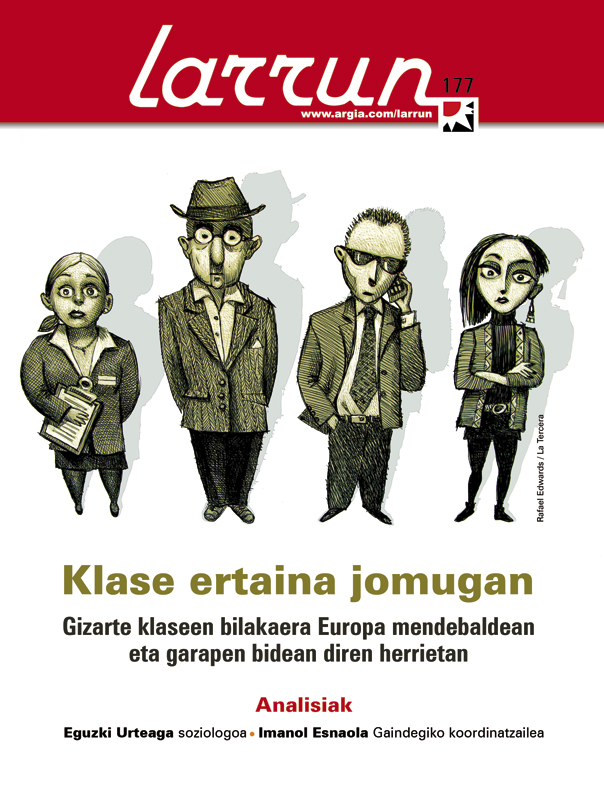

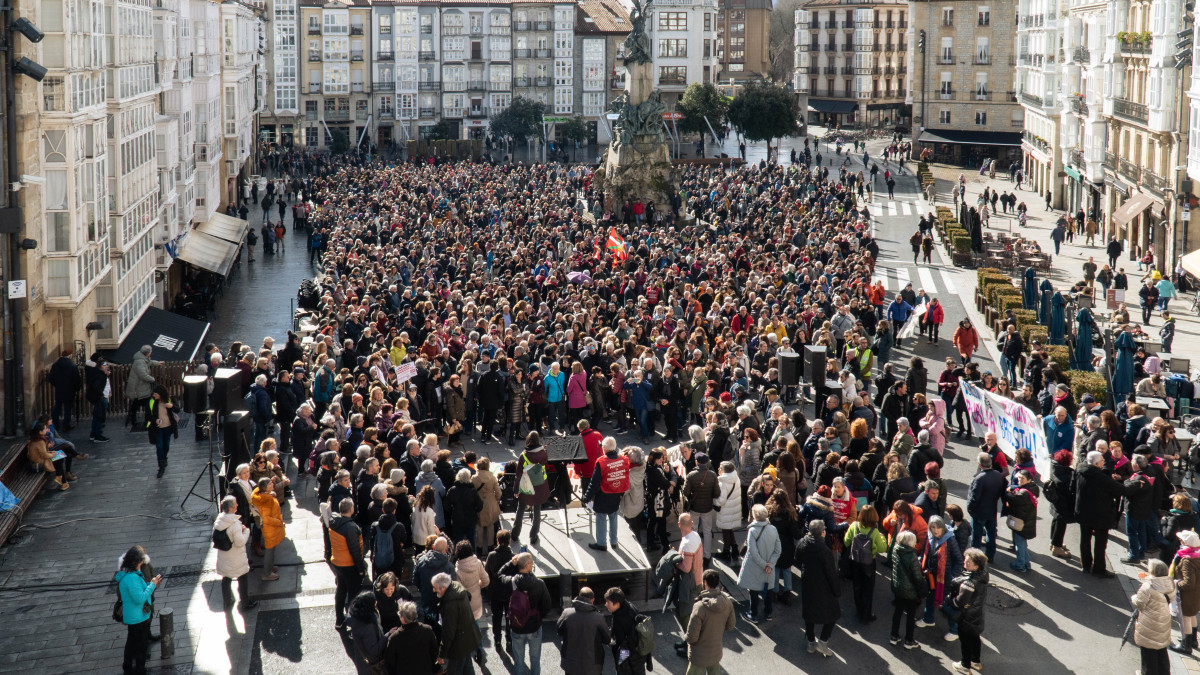
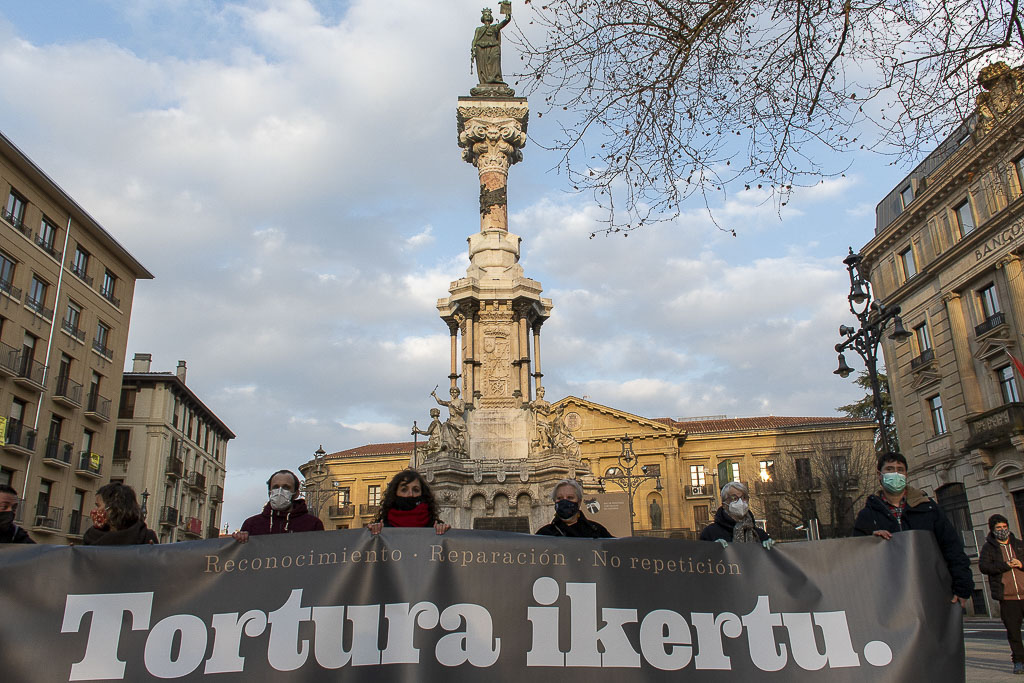


.jpg)
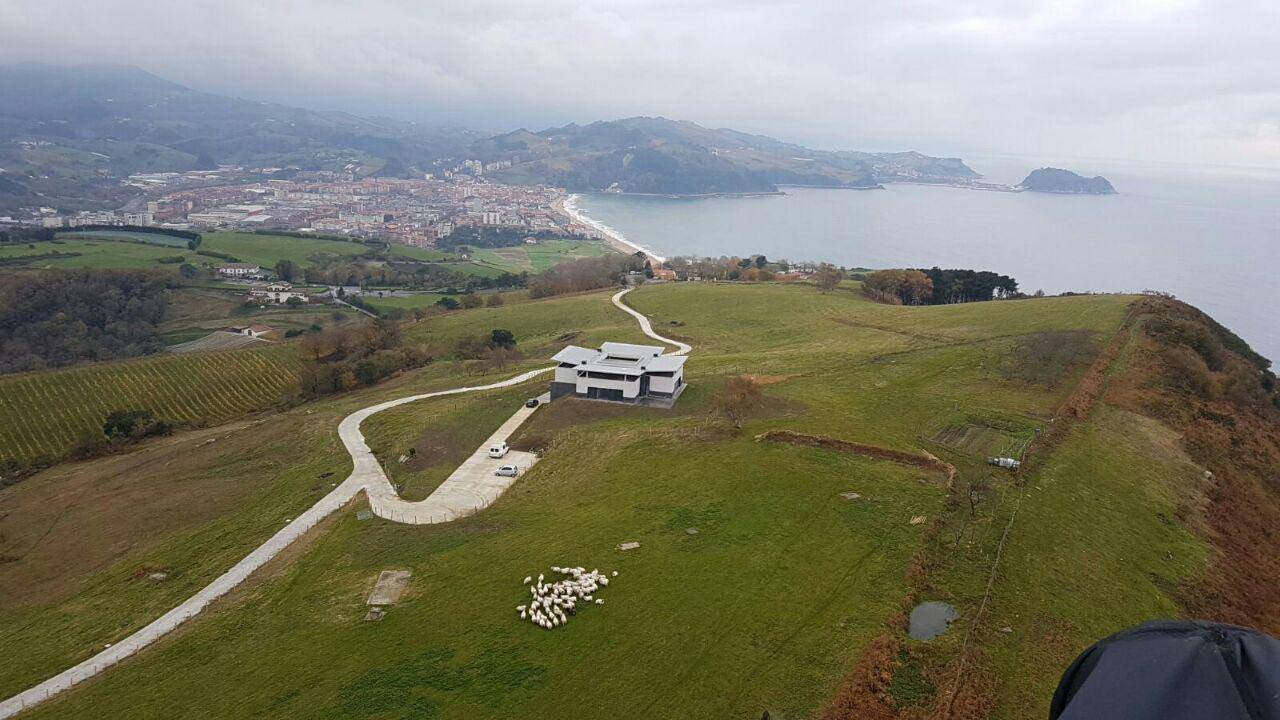
.jpg)
